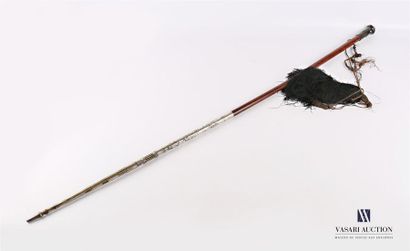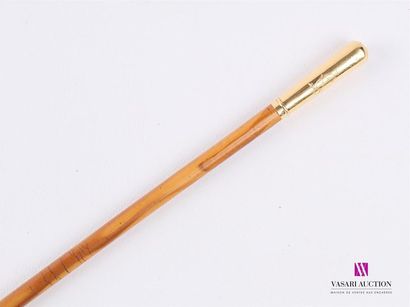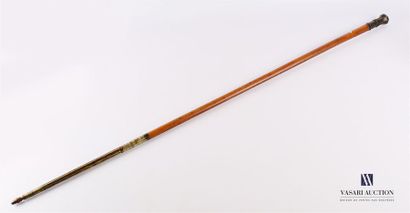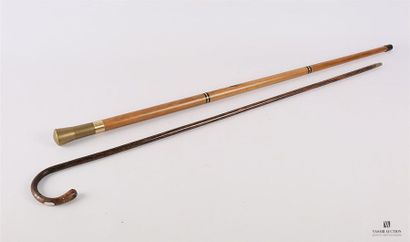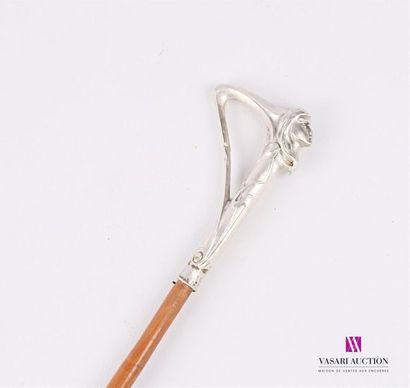Cane
Object of art par excellence, the cane is found at auction in all its forms and perfectly illustrates the complexity and delicacy of artistic techniques. Lady's cane containing a spray bottle, writer's cane containing a writing kit, prestige cane or simple walking stick, our auctions regularly present this collector's item.
In many civilizations around the world, the cane appears as an instrument of power and justice. We see it in ancient Egypt with the Heka, cane ending in hook which recalls the stick of shepherd guiding his flock. It can be seen in particular on the many representations of the sarcophagus of Tutankhamun next to the nekhekh, a kind of whip. Similarly on the bas-relief from Persepolis, Darius is represented with a long cane, in audience.
In Greco-Roman civilization, the most widespread cane is the pedum, an often coarse stick curved in the shape of a crook at its end, used by pastoralists to regroup the herd. This staff was taken up in Christian iconography as a symbol of Christ but also in its temporal representation by the institution: it is one of the attributes of the Pope and the bishops.
From the Middle Ages to the Renaissance, cane. The cane of reed or reed, which gives its name to the cane, appears. The cane distinguishes the female and male gender, it is often simple for women and sports the colors of their family.
During the 16th century, the cane became an accessory to the costume, its function or its corporation. It was at this time that, thanks to ingenious German gunsmiths, rods with a system concealing a blade or a spinning wheel pistol were born.
In the XVIIth century the use of the cane developed under Louis XIV although it prohibited its use in his presence in order to mark its superiority.
In the 18th century, the cane of manners and techniques. The walking stick is gaining momentum to fully assert itself in the following century. The style follows the era: Rococo, Louis XV, neoclassical. The knobs offer unlimited creation support. It is convenient, even compulsory, to go out with a cane, the wearing of which is governed by strict rules.
New systems are appearing: watch canes, canes for surveyors, notaries ... etc ... The cane is an object of luxury and representation, its pommel, its ring, its ferrule are the subject of very special care.
The 19th century marked the peak of the cane. From an artisanal production, its manufacture becomes mechanical, driven by the industrial revolution. The invention of the steam engine in 1830 will make it possible to bend the woods, which Thonet will experience before the manufacture of his furniture.
An outward sign of wealth and a social marker, the evolution of mores made this accessory obsolete from the 1920s on. The 20th century nevertheless saw some fine achievements. Dandy's accessory, collector's item, the cane remains sought after at auction.
Google translated v




